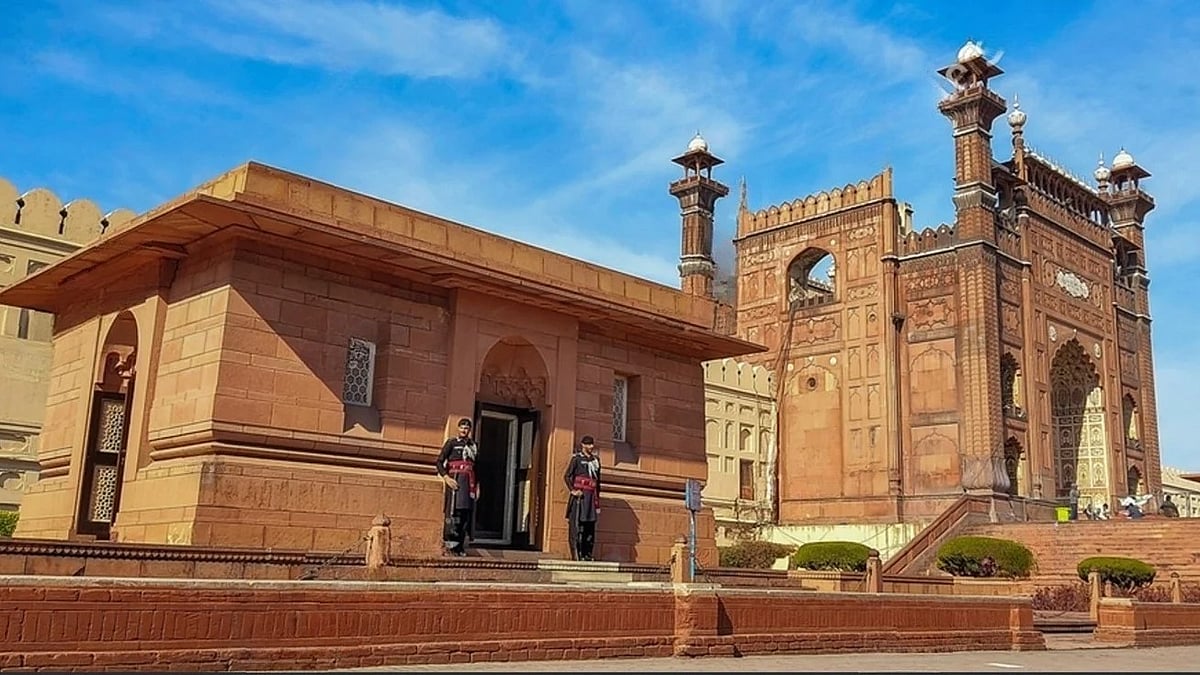Art and Culture
The eternal flame of 'khudi': Celebrating Allama Iqbal
On World Urdu Day, a salute to the visionary whose poetry reshaped philosophy and defined a language

Every year, 9 November brings a rare confluence of memory and meaning: the birth anniversary of Allama Muhammad Iqbal (1877–1938) and World Urdu Day.
Few poets have carried the burden of both cultural and philosophical transformation with such brilliance. Iqbal — of Kashmiri Pandit descent, educated in Cambridge, Munich, and Lincoln’s Inn — was not merely a poet of moods or metaphors; he was a seer, a sage, and a soul-stirrer whose verse remains among the most influential creations of the twentieth century. Revered as Shā‘ir-e-Mashriq — the Poet of the East — his legacy stands at the intersection of language, philosophy, and spiritual awakening.
Iqbal’s early works glowed with the fervor of Indian patriotism and human unity. His immortal Tarāna-e-Hind still rings across generations: 'Sāre jahān se achchhā Hindostān hamārā/ Hum bulbulen hain is kī, ye gulsitān hamārā (better than the whole world is our Hindustan/ We are its nightingales, and this is our garden).'
In poems such as Nayā Shiwālā (new temple), he envisioned a spiritual India that transcended religious divides. Yet, after his European sojourn, Iqbal’s imagination expanded from the nation to the cosmos. He began to speak not for a country, but for the self — for humanity’s struggle toward divinely inspired self-realisation.
At the centre of this shift stood one idea: khudi — translated inadequately as 'selfhood' or 'ego' — which was for Iqbal the spark of divine consciousness within every human being. He saw moral and civilisational decay as symptoms of a weakened self, one that had forgotten its creative power.
Published: undefined
In his most quoted lines, he exhorted the believer to transcend destiny itself: 'Khudi ko kar buland itnā/ Keh har taqdīr se pehle/ Khudā bande se khud poochhe/ Batā, terī razā kyā hai? (endow your will with such power/ That at every turn of fate it so be/ That God Himself asks His slave: what is it that pleases thee?)'
To cultivate khudi, Iqbal demanded ethical discipline, spiritual love (ishq), and unflinching self-mastery. True freedom, he argued, comes not from revolt alone but from creative participation in God’s ongoing act of creation. 'Ghulāmī mein na kām ātī hain na shamshīren na tadbīren/ Jo ho zauq-e-yaqīn pāydā to kat jātī hain zanjīren (neither swords nor strategies avail in bondage/ Once conviction is born, the chains themselves are shattered).'
Iqbal’s dual genius lay in his ability to combine metaphysical depth with lyrical beauty. His Shikwā (the complaint) and Jawāb-e-Shikwā (the answer) dramatised the Muslim world’s anguish and God’s response in a grand poetic dialogue. His lectures, collected as The Reconstruction of Religious Thought in Islam, reimagined faith in the light of science, reason, and evolution — centuries ahead of their time.
He urged humanity to see the universe as a living, unfolding process — an ever-ascending arc of becoming. His vision of perpetual striving glows in his timeless verse: 'Sitāron se āge jahān aur bhī hain/ Abhī ishq ke imtihān aur bhī hain… (there are worlds beyond the stars/ and there are still more tests of love to come).
Published: undefined
And in his reflection on the rarity of genius: 'Hazāron sāl nargis apnī be-nūrī pe rotī hai/ Baṛī mushkil se hotā hai chaman mein dīda-var pāydā (for thousands of years the narcissus weeps at its own blindness/ so rarely is a true visionary born in the garden).
While Iqbal’s political philosophy later inspired the idea of Pakistan, his enduring relevance surpasses all territorial boundaries. His Urdu and Persian works — from Asrār-e-Khudi (secrets of the self) to Zarb-e-Kalīm (the rod of Moses) — resonate wherever individuals struggle to reclaim agency, meaning, and spiritual dignity.
On World Urdu Day, his legacy reminds us that language itself can be an act of liberation. Urdu — fluid, musical, inclusive — found in Iqbal its purest philosophical instrument. His call still echoes with moral urgency: 'Apne mann mein doob kar pā jā surāgh-e-zindagī/ Tu agar merā nahīn bantā, na ban, apnā to ban! (dive into your own heart and find the secret of life/ If you don’t become mine, then don’t — but become your own!).'
In an age of disillusionment, Iqbal’s flame of khudi continues to burn bright. His verse does not merely speak — it summons. It invites us to imagine, act, and become co-creators in the grand design of life. The Poet of the East remains what he always was: a timeless guide urging us to rise, think, and love with divine intensity.
Hasnain Naqvi is a former member of the history faculty at St Xavier’s College, Mumbai. You will find more of his writing here
Published: undefined
Follow us on: Facebook, Twitter, Google News, Instagram
Join our official telegram channel (@nationalherald) and stay updated with the latest headlines
Published: undefined